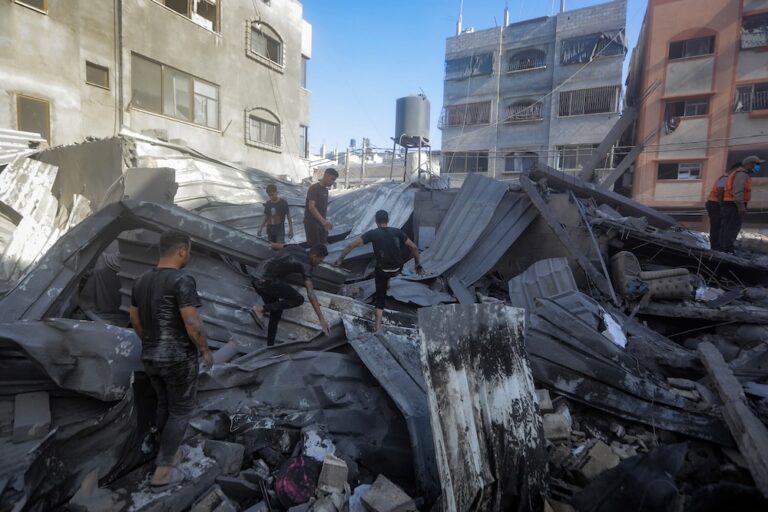(RSF/IFEX) – In a letter to Vice-Minister of the Interior Ahmed Said Tamimi, RSF protested the intimidation of journalists and confiscation of their equipment on 5 February 2002 in Jenin. “Under no circumstances should the Palestinian Authority prevent media from doing their job, especially when they are covering tragic events such as the ones that […]
(RSF/IFEX) – In a letter to Vice-Minister of the Interior Ahmed Said Tamimi, RSF protested the intimidation of journalists and confiscation of their equipment on 5 February 2002 in Jenin. “Under no circumstances should the Palestinian Authority prevent media from doing their job, especially when they are covering tragic events such as the ones that took place in Jenin,” stated Robert Ménard, the organisation’s secretary-general. “We ask that you take urgent measures to put an end to the obstacles to the right to inform encountered by journalists in the territories under your control,” he added.
According to information collected by RSF, on 5 February, Palestinian police in Jenin prevented journalists from working. The journalists were covering the trial of three Palestinians charged with murder. The television crews’ cassettes were seized by police after the cameramen filmed an angry mob outside the chamber of commerce (turned into a courthouse). The mob was protesting the verdict, which it considered too leniant. The three young Palestinians were sentenced to fifteen years’ imprisonment for the murder, a week earlier, of a Palestinian security officer who was a relative of theirs. Rallying outside the chamber of commerce, the mob then forced its way into the building, and a group of men shot and killed the three convicted Palestinians. Their bodies were subsequently dragged into the street.
Since 11 September 2001, the Palestinian police forces have often prevented journalists from working freely. This was notably the case when some Palestinians expressed their joy following the terrorist attacks in New York. On 14 September, the Palestinian police interrogated five journalists. They were covering a demonstration in a Nusseirat refugee camp honouring the memory of the suicide bomber who blew himself up on 9 September in Nahariya, Israel. A Reuters photographer and editor, an Associated Press Television cameraman, an Abou Dhabi satellite television correspondent and an Agence France-Presse photographer were released an hour and a half later, after the police seized their video cassettes and films. A portrait of Osama bin Laden was brandished by teenagers during the commemoration.


